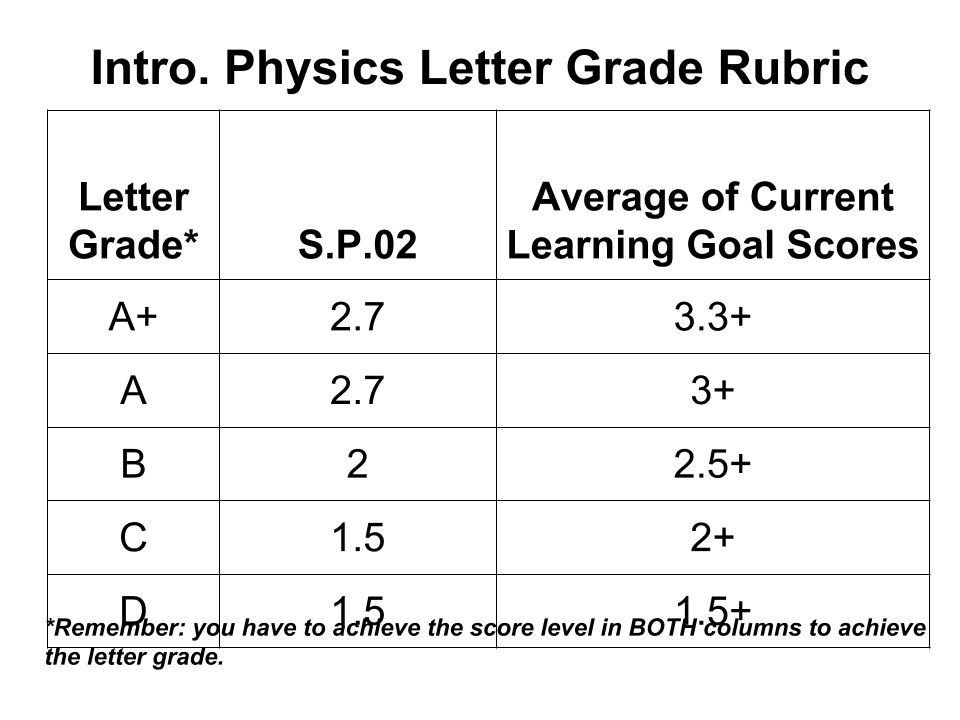The progress report that is posted on Edline does not give as much insight into the story of your performance as does your progress on ActiveGrade. If you are interested in working towards a better grade by the semester's end, here are a few things to keep in mind:
(2) average mastery of concepts, i.e. your average assessment scores (the average of all other learning goals).
- Any letter grade is achievable, no matter what letter grade is currently reported in the interim progress report. The larger the difference between the current grade and your target letter grade, the more you will have to make a change to the way you study and participate in this class. For example, you can achieve an "A" by semester's end, if you are willing to put in enough strategic, persistent action to improve. Please stop in and talk with me if you need some direction on what to do.
- The final letter grade is determined by two criteria. You must achieve strong enough in BOTH criteria to achieve your target letter grade. The two criteria are:
(2) average mastery of concepts, i.e. your average assessment scores (the average of all other learning goals).
- The rubric for translating the criteria to letter grade is as follows:
- You can improve your scores by re-assessing past learning goals. You can use the worksheet link here to determine what goals you wish to re-assess, then make an appointment with me to re-assess your learning goals.

 RSS Feed
RSS Feed